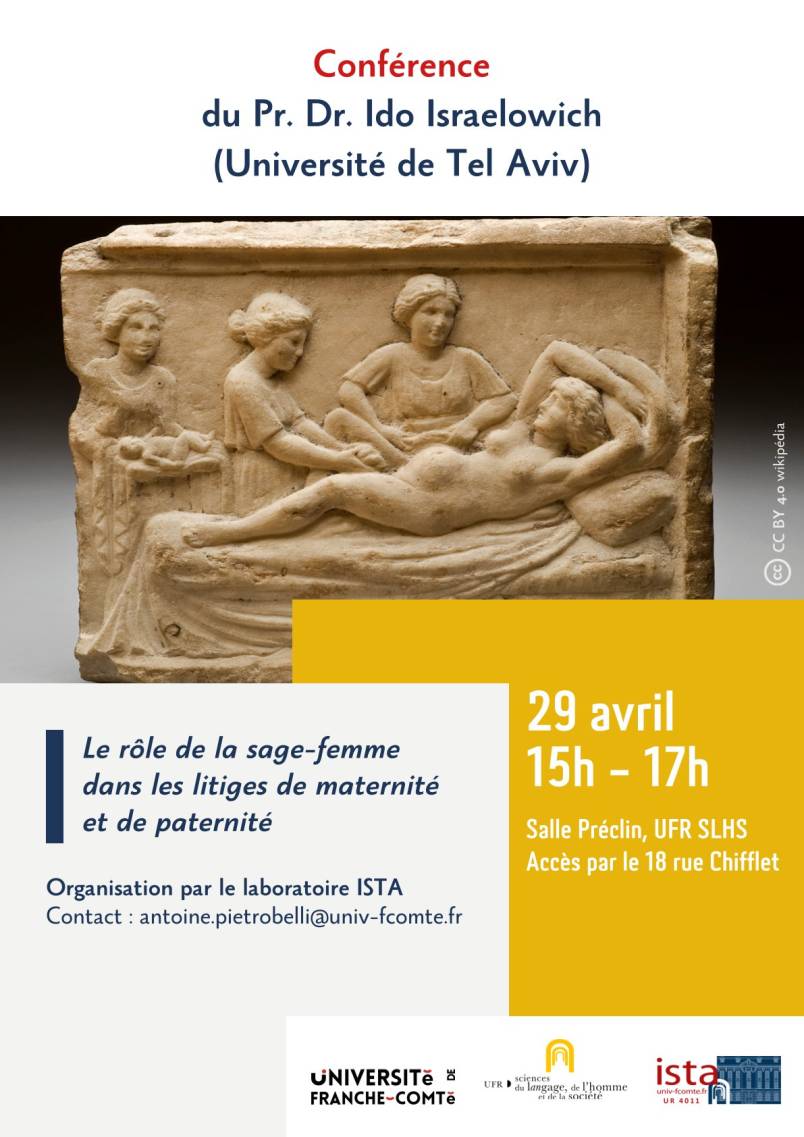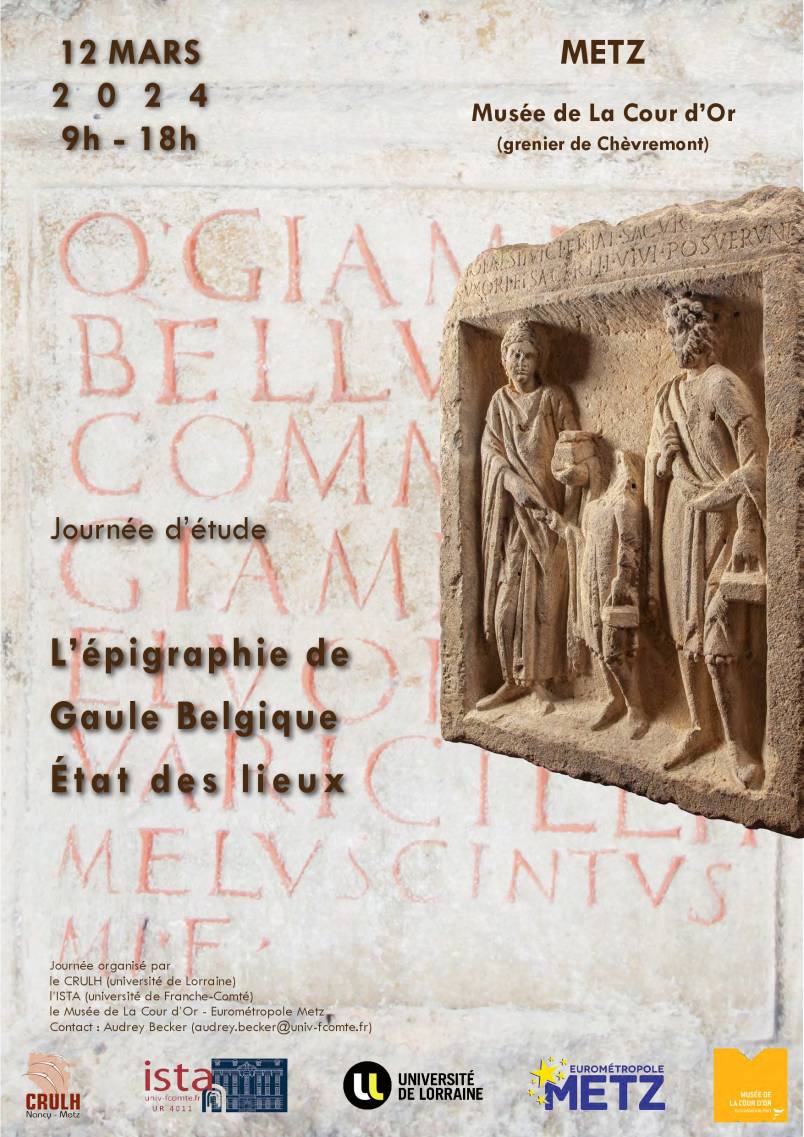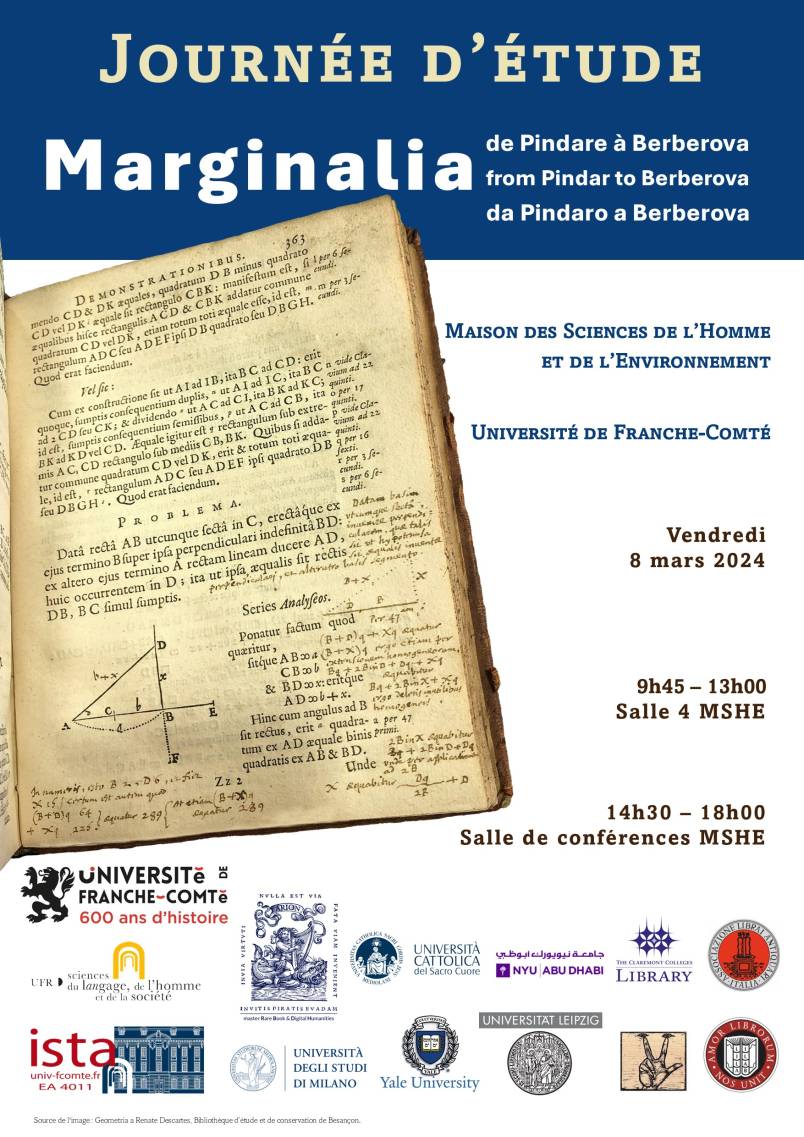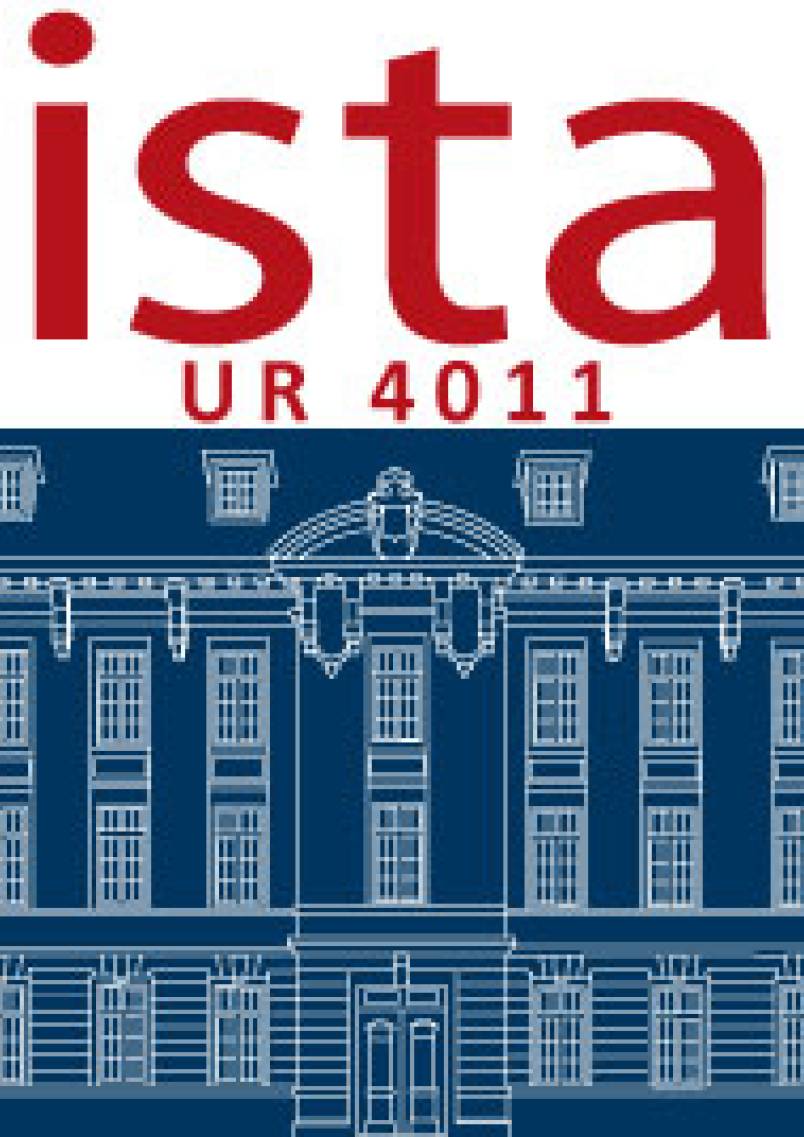Deprecated: pg_query(): Automatic fetching of PostgreSQL connection is deprecated in /var/www/ista/html/publista/Commun/dbHelper.php on line 204
Deprecated: pg_query(): Automatic fetching of PostgreSQL connection is deprecated in /var/www/ista/html/publista/Commun/dbHelper.php on line 268
Warning: Trying to access array offset on value of type bool in /var/www/ista/html/publista/Commun/dbHelper.php on line 282
Auteur :
Warning: Undefined property: stdClass::$prenom in /var/www/ista/html/publista/livre.php on line 83
Warning: Undefined property: stdClass::$nom in /var/www/ista/html/publista/livre.php on line 83
Cairn
Persee
PUFC
I- Tyranny and the Polis (La tyrannie et la polis)
Tyranny and Social Ontology in Classical Athens (Tyrannie et ontologie sociale dans l’Athènes classique)
Greg ANDERSON
The Tyrannicide Citizen in Fifth-Century Athens (Citoyens tyrannicides dans l’Athènes du Ve siècle)
James MCGLEW
Classical Tyrants and the Assembly (Tyrans de la période classique face à l’assemblée)
Sian LEWIS
II-The Image of the Tyrant (L’image du tyran)
Tragedy and Tyranny: Euripides, Archelaus of Macedon and Popular Patronage (Tragédie et tyrannie : Euripide, Archélaos de Macédoine et soutien populaire)
Edmund STEWART
III- Tyranny in the Hellenistic Kingdoms (La tyrannie dans les royaumes hellénistiques)
Le nom du Maître
Claudia DE OLIVEIRA GOMES
Tyranny under Alexander the Great and the Diadochi: the Clearchids of Heraclea Pontica (La tyrannie sous Alexandre le grand et les diadoques : les Cléarchides d’Héraclée pontique)
Miles LESTER-PEARSON
The Tyrants of the Hellenistic East (Les tyrans de l’orient hellénistique)
Adrian DUMITRU
The Last Tyrants of Athens (Les derniers tyrans athéniens)
Borja ANTELA BERNADEZ
This collection of papers, originally presented at the Seventh Celtic Classics Conference in Bordeaux, represents a new approach to the concept of ‘tyranny’ in the ancient world, tracing the idea and image of the tyrant in Greek and Roman political culture. The contributors consider rulers and regimes from classical Greece to imperial Rome, with particular emphasis on the Hellenistic period, where the role of tyranny is only beginning to receive attention, and on the ways in which tyranny was mediated by the political community. Contributors also consider the image of the tyrant in philosophy and literature, and the effects of these ideas on rulers and institutions.
Ce collectif, réunissant des communications présentées au septième congrès des études classiques celtes à Bordeaux (Seventh Celtic Classics Conference), constitue une nouvelle approche du concept de « tyrannie » dans le monde antique par un dépistage de l’idée et de l’image du tyran dans la culture politique gréco-romaine. Les contributeurs examinent gouvernants et régimes, de la Grèce classique à la Rome impériale, en s’attachant particulièrement à la période hellénistique, pour laquelle on commence seulement à s’intéresser au rôle de la tyrannie, et aux manières dont la tyrannie était médiatisée par la communauté politique. Les contributeurs traitent également de l’image du tyran en philosophie et dans la littérature et aux conséquences de ces idées sur les gouvernants et les institutions.
Este colección, que reúne los trabajos presentados en la Séptima Conferencia Celta de Clásicos en Burdeos, constituye un nuevo enfoque del concepto de “tiranía” en el mundo antiguo a través de una proyección de la idea y la imagen de la tirano en la cultura política greco-romana. Los contribuyentes examinan los gobernantes y los regímenes, desde la Grecia clásica hasta la Roma imperial, prestando especial atención al período helenístico, para el cual solo estamos empezando a interesarnos por el papel de la tiranía, y las formas en que la tiranía fue mediada por la comunidad política. Los contribuyentes también se ocupan de la imagen del tirano en la filosofía y la literatura y las consecuencias de estas ideas en los gobernantes y las instituciones.
Deprecated: pg_query(): Automatic fetching of PostgreSQL connection is deprecated in /var/www/ista/html/publista/Commun/dbHelper.php on line 301
Deprecated: pg_query(): Automatic fetching of PostgreSQL connection is deprecated in /var/www/ista/html/publista/Commun/dbHelper.php on line 323
Auteur : Greg ANDERSONTyranny and Social Ontology in Classical Athens[Résumé]When modern authorities speak of the threat posed by tyranny to demokratia in Athens, they tend to cast it in modern terms, as a threat to institutions which safeguarded the rights and freedoms of individuals. Athenian texts see this threat very differently, as a katalusis or ‘ dissolution’ of demos itself. What exactly does this language mean? To answer this question, we need to reconsider how we objectify the politeia of the classical Athenians. We need to relinquish our conventional social scientific categories and try to understand ancient demokratia on its own ontological terms. When we do this, I suggest, we will see that the Athenian politeia was not an idealistic exercise in political egalitarianism, as is generally believed. It was an altogether more pragmatic exercise in preserving the life of demos, a unitary social body, the corporate self of the polis. And it was precisely the life of this social self, not the rights of individuals, which a tyrant would potentially extinguish or ‘ dissolve’ . The threat posed by tyranny to Athens was not merely institutional but ontological. Keywords: Athens, Democracy, Tyranny, Demos, Ontology. Résumé : Quand les autorités modernes parlent de la menace que posait la tyrannie à la demokratia athénienne, ils ont tendance à la concevoir en termes actuels, comme une menace pour des institutions protégeant les droits et les devoirs des individus. Les textes athéniens ont une vue très différente de cette menace, comme une katalysis ou « dissolution » du dèmos même. Que signifie exactement ce langage ? Pour répondre à la question, il nous faut repenser la façon dont nous objectifions la politeia des Athéniens de l’époque classique. Il nous faut abandonner nos catégories sociales scientifiques conventionnelles afin de tenter de comprendre la dèmokratia antique dans ses propres termes ontologiques. Ce faisant, nous verrons, à mon sens, que la politeia athénienne n’était pas une tentative idéaliste d’égalitarisme politique, comme on le croit généralement. C’était une tentative bien plus pragmatique de préserver la vie de dèmos, corps social unitaire, essence collective de la polis. Et c’était précisément la vie de cette entité sociale, et non pas les droits des individus, qu’un tyran éventuel annihilerait ou « dissoudrait ». La menace posée à Athènes par la tyrannie n’était pas de nature simplement institutionnelle mais ontologique. Mots-clés : Athènes, Démocratie, Tyrannie, Dèmos, Ontologie.
Deprecated: pg_query(): Automatic fetching of PostgreSQL connection is deprecated in /var/www/ista/html/publista/Commun/dbHelper.php on line 323
Auteur : James MCGLEWThe Tyrannicide-Citizens of Fifth-Century Athens[Résumé]Long after tyrants no longer presented a real and present danger for Athens, tyranny and tyrannicide continued to occupy the imagination and public discourse of the Athenian democracy. The Athenians’ response (real or fabricated) to tyranny gave them a powerful (if imaginary) model to identify and manage the elites and leaders whose ambitions worried them. This conceptual flexibility was clearly an asset of the Athenian democracy. But just as importantly, tyrannicide occupied a place in the Athenians’ understanding of democratic citizenship. Tyrannicide framed the potential of every citizen to protect the democracy when threatened, a potential that underlay his civic responsibilities and powers. In addition, this paper argues, the memory and celebration of the tyrannicides, Harmodius and Aristogiton, their achievement and, most of all, their relationship, gave the Athenians a public narrative that illustrated the concepts of friendship and equality framing their everyday political lives. Keywords: Tyrannicide, Democracy, Tyranny, Citizenship, Harmodius, Aristogiton, Athens. Résumé : Longtemps après que les tyrans avaient cessé de présenter pour Athènes un danger réel et actuel, la tyrannie et le tyrannicide continuaient d’ occuper l’imagination et le discours public de la démocratie athénienne. La réaction (réelle ou revue et corrigée) des Athéniens à la tyrannie leur offrait un modèle puissant (bien qu’imaginaire) leur permettant d’identifier et de contrôler les élites et dirigeants aux ambitions inquiétantes. Cette souplesse conceptuelle était évidemment un avantage de la démocratie athénienne. Mais, de façon tout aussi importante, le tyrannicide jouait un rôle dans la manière dont les Athéniens comprenaient la citoyenneté démocratique. Le tyrannicide marquait le potentiel de tout citoyen amené à protéger la démocratie en cas de menace, potentiel qui sous-tendait ses responsabilités et pouvoirs civiques. En outre, comme le soutient la présente communication, le souvenir et la célébration des tyrannicides Harmodius et Aristogiton, de leur accomplissement et, surtout, de leur relation offraient aux Athéniens un récit public illustrant les concepts d’ amitié et d’ égalité qui donnaient un cadre à leur vie politique de tous les jours. Mots-clés : Tyrannicide, Démocratie, Tyrannie, Citoyenneté, Harmodius, Aristogiton, Athènes.
Deprecated: pg_query(): Automatic fetching of PostgreSQL connection is deprecated in /var/www/ista/html/publista/Commun/dbHelper.php on line 323
Auteur : Sian LEWISClassical Tyrants and the Assembly[Résumé]This article examines the interactions between classical tyrants and the assembly, and their wider implications for our understanding of the nature of tyrannical rule, applying the theory of plebiscitary politics as formulated by Hammer. I suggest that tyrants, rather than devaluing or sidelining the popular assembly, deliberately preserved it as one element of a continuing dialogue with the demos which underpinned their rule. Taking as examples the rulers of Syracuse, Dionysius I and Agathocles, I show how tyrants used the assembly as a means of reinforcing their power, and in the case of Dion, how a failure to carry the assembly could be disastrous. I also show that the citizens in turn recognised the reciprocal nature of the relationship which assemblies engendered in the tyrannical polis. Keywords: Tyranny, Tyrant, Assembly, Plebiscitary, Dionysius I, Dion, Agathocles, Syracuse. Résumé : Le présent article examine les interactions entre tyrans de l’époque classique et l’assemblée, ainsi que les implications plus larges de ces interactions concernent notre conception de la nature du régime tyrannique, en nous appuyant sur la théorie de la politique plébiscitaire telle que l’a formulée Hammer. Ma thèse est que les tyrans, plutôt que de dévaluer ou d’ éluder l’assemblée populaire, la préservaient délibérément comme un élément de dialogue permanent avec le dèmos qui renforçait leur autorité. Prenant comme exemples les dirigeants syracusains Denis I et Agathocle, nous démontrons que les tyrans utilisaient l’assemblée pour renforcer leur pouvoir et, dans le cas de Dion, qu’échouer à gagner l’assentiment de l’assemblée pouvait se révéler désastreux. Nous montrons également que les citoyens, eux aussi, étaient conscients de la nature réciproque de la relation que généraient les assemblées dans la polis tyrannique. Mots-clés : Tyrannie, Tyran, Assemblée, Politique plébiscitaire, Denys l’ Ancien, Dion, Agathocle, Syracuse.
Deprecated: pg_query(): Automatic fetching of PostgreSQL connection is deprecated in /var/www/ista/html/publista/Commun/dbHelper.php on line 323
Auteur : Edmund STEWARTTragedy and Tyranny: Euripides, Archelaus of Macedon and Popular Patronage[Résumé]This paper concerns the patronage of tragic poets by tyrants. In particular it reexamines the relationship between Euripides and King Archelaus of Macedonia, the reasons for the tragedian’s presence at the royal court and the extent of his activities there. In recent years doubts have been raised concerning Euripides’ sojourn and death in Macedonia. In reassessing the available evidence, I argue that Euripides was commissioned to write several plays for his royal patron: not only the Archelaus, the title of which is a clear reference to the king, but also the Temenus and Temenidae. These works were produced in Macedonia, almost certainly by Euripides himself, but not, I suggest, on the same occasion. This article therefore proposes not one, but two separate visits to Macedonia: the first in around 411 BC, the second shortly before the death of Euripides in 406. Archelaus’ patronage thus continued over a longer period and stimulated more activity on the part of Euripides and other poets than has often been acknowledged. I suggest that tyrants, prompted both by a genuine appreciation for poetry and by sound political reasons, had an important and, until recently, largely neglected role in funding the performance and dissemination of tragedy. Keywords: Archelaus, Aristophanes, Euripides, Macedonia, Patronage, Theatre, Tragedy, Tyrants, Tyranny. Résumé : La présente communication a pour thème le mécénat exercé par des tyrans sur les poètes tragiques. Il réexamine, en particulier, les liens entre Euripide et le roi Archélaos de Macédoine, les raisons expliquant la présence du poète tragique à la cour du roi et l’ étendue de ses activités lorsqu’il s’ y trouvait. Dans les années récentes, des doutes ont été exprimés quant au séjour et à la mort d’Euripide en Macédoine. En réévaluant les sources disponibles, nous soutenons qu’Euripide a reçu des commandes pour la composition de plusieurs pièces pour son protecteur royal : non seulement l’Archélaos, dont le titre même fait évidemment référence au roi, mais aussi le Téménus et les Téménides. Ces ouvrages ont été montés en Macédoine, presque certainement par Euripide en personne, mais non, à notre avis, à la même occasion. Le présent article avance donc qu’il n’y a pas eu une seule visite, mais deux : la première vers 411 av. J.-C., la seconde avant la mort d’Euripide en 406. Le mécénat d’Archélaos s’est donc exercé sur une période plus longue et a stimulé davantage l’activité d’Euripide et d’autres poètes qu’on ne l’a généralement reconnu. Ma thèse est que les tyrans, poussés à la fois par une authentique appréciation de la poésie et par des considérations politiques concrètes, ont joué un rôle significatif et fort méconnu jusqu’ à il y a peu en finançant la représentation et la diffusion de tragédies. Mots-clés : Archélaos, Aristophane, Euripide, Macédoine, Mécénat, Théâtre, Tragédie, Tyrans, Tyrannie.
Deprecated: pg_query(): Automatic fetching of PostgreSQL connection is deprecated in /var/www/ista/html/publista/Commun/dbHelper.php on line 323
Auteur : Claudia DE OLIVEIRA GOMESLe nom du Maître[Résumé]Le nom donné aux titulaires d’un pouvoir autocratique apparaît comme le reflet et le creuset de représentations politiques complexes. En Grèce, des dynamiques idéologiques singulières s’affirment et se travaillent dans l’onoma du maître – pour reprendre le mot d’Hérodote. Ce postulat n’est pas récent, pas plus que la recherche qui s’y attache, mais les études n’ont jamais été menées sur un temps long, dont les frontières dépasseraient les limites canoniques des périodes classique et hellénistique – ni dans un corpus large, qui engloberait les documents officiels comme la littérature. Pourtant, nous faisons ici l’hypothèse que les représentations culturelles du pouvoir dans le monde grec sont issues d’une longue histoire cohérente. Et quand bien même, à l’époque hellénistique, les formules se figent pour deux siècles, l’immobilité elle-même pourrait ne se comprendre que comme la perception d’une histoire politique suspendue entre passé et présent, une hésitation entre un héritage prégnant et un présent presque impensable. Mots-clés : Titres royaux, Monarchie, Rois hellénistiques, Tyrannie, Pouvoir politique, Grèce. Abstract: The name given to holders of autocratic power is evidently a reflection and crucible for complex political representations. In Greece, special ideological dynamics are played out and realized in the master’s onoma – to borrow Herodotus’ s term. The point has long been recognized and researched, but studies have never been conducted over a long period, not bound by the canonical Classical and Hellenistic eras – nor within an extended corpus, comprising both official documents and literature. Yet, I suggest here that cultural representations of power, in the Greek world, are derived from a long, consistent history. And even though, during the Hellenistic period, formulations remained stable for two centuries, this very immobility can only be understood as the perception of a political history suspended between past and present, wavering between a pregnant heritage and an almost inconceivable present. Keywords: Royal Titles, Monarchy, Hellenistic Kings, Tyranny, Political Power, Greece.
Deprecated: pg_query(): Automatic fetching of PostgreSQL connection is deprecated in /var/www/ista/html/publista/Commun/dbHelper.php on line 323
Auteur : Miles LESTER-PEARSONTyranny under Alexander the Great and the Diadochi: the Clearchids of Heraclea Pontica[Résumé]The Clearchid dynasty at Heraclea Pontica was able to maintain power through one of the most turbulent periods of ancient history: the invasion of Persia by Alexander the Great and the subsequent wars between Alexander’s successors. The regime was eventually abolished, but not before Dionysius and his successors had navigated through complex political affairs with some of the grander figures of the Hellenistic world: Antigonus Monopthalmus, Antipater, Lysimachus and Alexander’ s sister Cleopatra amongst others. Heraclea’ s relationship with the successors was vital for its continued survival, and makes explicit the very personal nature of the power dynamic which took place between the Hellenistic ruler and the representatives of cities within their ρχὴ. This article examines the success of the Clearchid tyranny at maintaining power, with particular emphasis on the Macedonian invasion of Asia Minor and the Exiles’ Decree, the relationship between the tyranny and the Diadochi in the aftermath of Alexander’s death, and the conclusions that can be drawn from the Clearchids about the nature of tyranny in the Hellenistic period. Keywords: Tyranny, Hellenistic, Heraclea Pontica, Exiles’ Decree, Diadochi, Dionysius, Asia Minor, Achaemenid, Persia. Résumé : La dynastie des Cléarchides d’Héraclée pontique a su se maintenir au pouvoir au cours d’une des périodes les plus troubles de l’histoire antique : l’invasion de la Perse par Alexandre le Grand et les guerres qui ont suivi entre les successeurs d’Alexandre. Le régime a fini par être aboli, mais non sans laisser le temps à Denys et à ses successeurs de mener des négociations politiques complexes avec quelques-unes des figures les plus haut placées du monde hellénistique : Antigone, Monophtalmus, Antipater, Lysimaque et Cléopâtre, soeur d’Alexandre, entre autres. Les relations entre Héraclée et les successeurs d’Alexandre étaient cruciales pour assurer sa survie et illustrent bien la nature très personnelle des dynamiques de pouvoir qui jouaient entre le dirigeant hellénistique et les représentants des cités au sein de leur ρχὴ. Le présent article examine le succès de la tyrannie cléarchide pour se maintenir au pouvoir, en nous concentrant en particulier sur l’invasion de l’Asie mineure par les Macédoniens et le décret sur les exilés, les relations entre la tyrannie et les diadoques dans la période suivant immédiatement la mort d’Alexandre, et les conclusions qu’ on peut tirer à partir des Cléarchides sur la nature de la tyrannie au cours de la période hellénistique. Mots-clés : Tyrannie, Hellénistique, Héraclée pontique, Décret sur les exilés, Diadoques, Denys l’ Ancien, Asie mineure, Achéménides, Perse.
Deprecated: pg_query(): Automatic fetching of PostgreSQL connection is deprecated in /var/www/ista/html/publista/Commun/dbHelper.php on line 323
Auteur : Adrian DUMITRUThe Tyrants of the Hellenistic East[Résumé]Tyranny as a phenomenon in the Hellenistic kingdoms is a topic neglected by modern scholarship; this chapter examines the surprisingly numerous recorded tyrannies in the Seleucid kingdom, and their relationship to the model of tyranny proposed by Aristotle and Polybius. The evidence suggests that ‘ moderate’ tyranny may have been a successful political form in the Hellenistic cities, and was more likely to be identified as ‘ tyranny’ in the hellenised polis. Keywords: Tyranny, Tyrant, Hellenistic, Seleucids, Polis, Polybius, Aristotle. Résumé : La tyrannie comme phénomène dans les royaumes hellénistiques est un phénomène que les chercheurs modernes ont négligé ; le présent chapitre examine les tyrannies relevées en nombre étonnamment élevé dans le royaume séleucide, et leurs liens avec le modèle de la tyrannie élaboré par Aristote et Polybe. Les sources historiques permettent de supposer que la tyrannie « modérée » était peut-être une forme politique réussie dans les cités hellénistiques, et qu'elle avait plus de chance d'être reconnue comme « tyrannie » dans les cas d'une polis hellénisée. Mots-clés : Tyrannie, Tyran, Royaumes hellénistiques, Séleucides, Polis, Polype, Aristote.
Deprecated: pg_query(): Automatic fetching of PostgreSQL connection is deprecated in /var/www/ista/html/publista/Commun/dbHelper.php on line 323
Auteur : Borja ANTELA-BERNÁRDEZThe Last Tyrants of Athens[Résumé]This paper examines the complex situation in Athens in the first decades of the first century BC. Between its good and advantageous relations with Rome, which gained Athens great benefits from the control of the Delian markets, and the harsh sack of the city by the troops of Sulla in March 86, the city suffered an economic crisis deriving from political instability. The government of Athens was held by individuals who acted like tyrants, at a moment when both events and historical context (social conflict and economical crisis) seem to recall the situation that produced the earlier phenomenon of Greek tyranny. Keywords: Mithridatic Athens, Medeios, Athenion, Aristion, Delos, Social Conflict, Economic Crisis. Résumé : La présente communication examine la situation complexe d'Athènes dans les premières décennies du premier siècle av. J.-C. Dans la période allant de ses bonnes et profitables relations avec Rome, qui valurent à Athènes des bénéfices considérables par suite du contrôle des relations commerciales de Délos, et le sac impitoyable de la ville par les troupes de Sylla en mars 86, la cité a souffert d'une crise économique liée à l’instabilité politique. Le gouvernement d’Athènes était assuré par des individus se comportant en tyrans, alors même que les événements et le contexte historique (conflits sociaux, crise économique) paraissaient rappeler la situation qui avait produit le phénomène antérieur de la tyrannie grecque. Mots-clés : Athènes, Mithridate, Médéios, Athénion, Aristion, Délos, Conflits sociaux, Crise économique.





